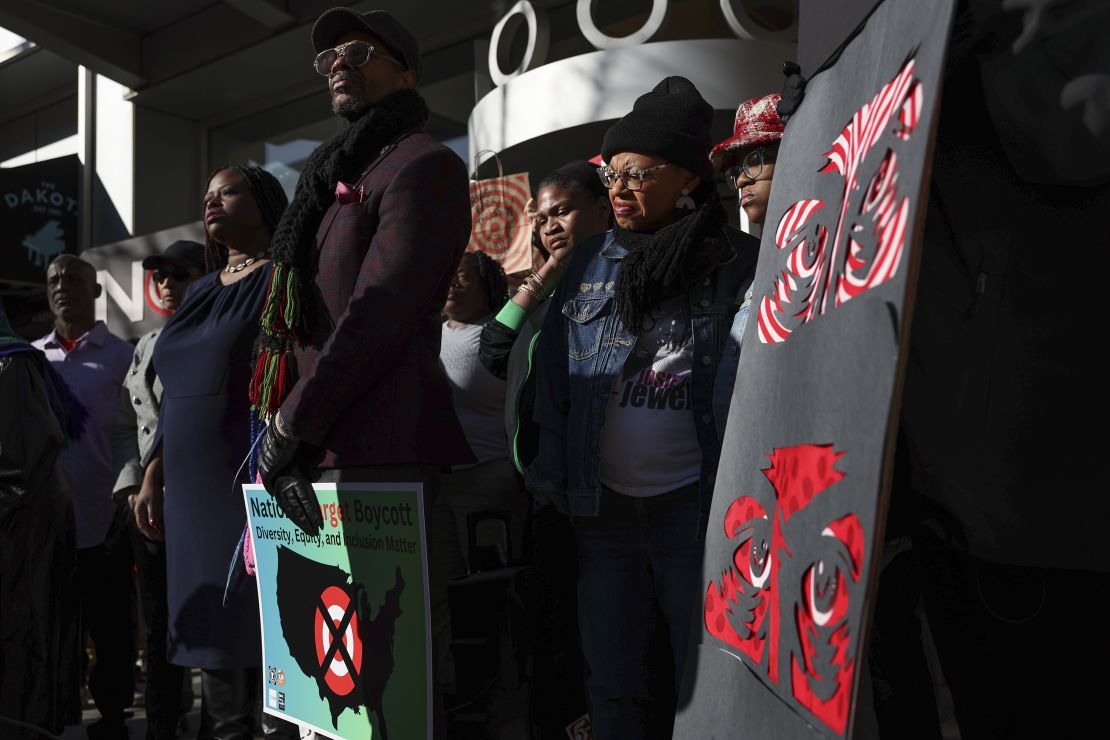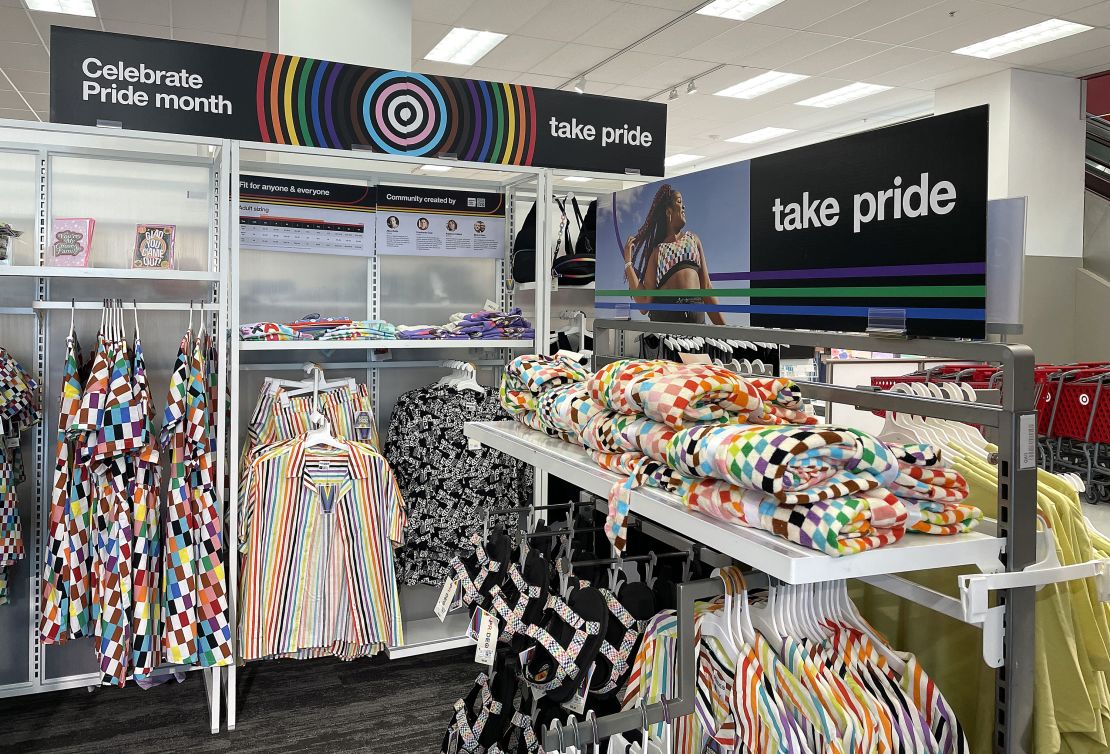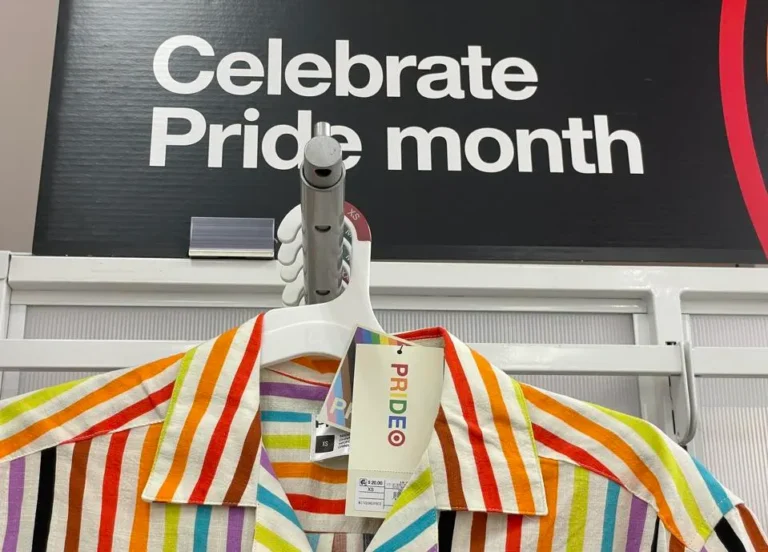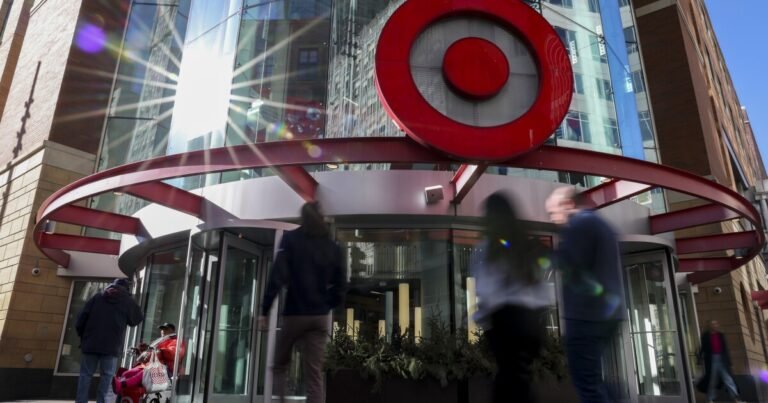On January 24, days into the Trump presidency, Target announced it was eliminating hiring goals for minority employees, ending an executive committee focused on racial justice, and making other changes to its diversity initiatives. Target said it had a new strategy called “Belonging at the Bullseye,” which it first introduced last year, and the company remained committed to “creating a sense of belonging for our team, guests and communities.” Target also stressed the need for “staying in step with the evolving external landscape.”
Target is one of dozens of Fortune 500 companies that have backtracked on DEI in response to conservative court decisions, pressure from activists and right-wing legal groups, and, more recently, the Trump administration’s threats to investigate what it characterizes as “illegal DEI,” including potential criminal cases against companies.
But no company has faced as fierce a blowback from DEI supporters as Target.
Target is under more heat than companies like Walmart, John Deere or Tractor Supply because it went further in its DEI efforts, and it has a more progressive base of customers than those companies.
Target’s DEI rollback “seems to be rather arbitrary, based on current political mood,” said Shreyans Goenka, a marketing professor at Virginia Tech who studies how political beliefs impact consumer choices. “When brands become arbitrary in their social causes — supporting DEI today, rolling it back tomorrow — that leads to inconsistent positioning and it makes the brand seem inauthentic.”

Target was a leading advocate for DEI programs in the business world in the years after George Floyd was murdered by police in the company’s home city of Minneapolis in 2020. Target also spent years building a public reputation as a progressive employer on LGBTQ issues. The company publicly supported gay marriage in 2014 before it was legalized nationwide, and it was one of the first national retailers to allow transgender employees and customers to choose bathrooms corresponding to their gender identities.
Target also stepped up efforts to attract young parents and minority customers in recent years and built up a strong customer base of Democrats. Democrats are likelier to shop at Target and view the chain more favorably, according to polls and surveys. Target has made a push to open smaller stores in cities and near college campuses, which tend to be more liberal.
It’s still too early to say whether public criticism will hurt Target financially or cause lasting damage to the company. But the blowback to Target’s DEI moves represents a significant challenge to its business and highlights the risks of companies abruptly moving away from diversity initiatives that still enjoy support on the left. Companies are caught between pursuing efforts to increase diversity and avoiding a conservative legal crackdown.
One former Target executive who spoke under the condition of anonymity due to fear of career repercussions said that the company is getting stung by customers who feel they were “sold a lie.”
“Black people supported Target. They went to that space because of what Target had done,” the former executive said. “People are questioning whether they were really behind this in the first place or if it was a marketing stunt.”
Some friends and family have stopped shopping at Target, this person said. “When you lose trust, it’s hard to bring back.”
Whiplash to Target
Target’s change has angered some customers who say the company’s moves have given them whiplash.
In the aftermath of George Floyd’s murder, Target established an executive Racial Equity Action and Change committee, pledged to increase its Black workforce by 20% throughout the company,y and committed to spend more than $2 billion with Black-owned businesses by the end of 2025.
Target was honored for its “outstanding commitment to achieving Diversity, Equity, and Inclusion” in 2022 by the Executive Leadership Council, a prominent organization of global Black CEOs.
But Target has now changed its message. Its racial equity committee, minority hiring pledges, and financial commitments to Black-owned suppliers are all ending, as well as Target’s participation in external diversity-focused surveys like the one from the Human Rights Campaign, an LGBTQ advocacy group.
Target said it’s still committed to inclusivity and offering a wide range of products and services, including Black and minority-owned products, in a statement to CNN.
“For more than 20 years, Target has fueled our business by building teams with diverse perspectives and experiences, creating inclusive work and guest environments that welcome all, and developing strategies that represent the U.S. consumers we serve,” Target said.
Target has said the company was on track to meet its prior workforce diversity goals and financial commitments to Black suppliers, as well.
But several top Black Target executives and senior leaders have left the company in recent years, including three of the six from Target’s executive racial equity committee.
‘A betrayal’
Target is getting hit on several fronts, and there are signs that the backlash may be impacting business.
Anne and Lucy Dayton, the daughters of one of Target’s co-founders, called the company’s actions “a betrayal” and said they were “shocked and dismayed” by Target’s DEI rollback in a letter published last week in the Los Angeles Times. “By cowering, Target and others are undermining the very principles that have made their companies a success,” said the daughters, who are not involved in Target.
Target also received nearly triple the number of social media posts about its DEI changes than Walmart, according to an analysis by Social Element, a marketing firm.
Most of the comments have denounced Target’s move. Target received at least twice as many negative comments of its DEI moves as positive comments, according to the analysis. Some of the top posts were calls to boycott Target or switch to Costco and other retailers that were sticking with their DEI programs.
“The sentiment has been overwhelmingly negative,” said Ashley Cooksley and Linn Frost, CEOs of the Social Element.
Jamal Bryant, a prominent pastor in Atlanta, has called for a 40-day boycott of Target beginning in March. More than 50,000 have signed the online pledge.
“We have witnessed a disturbing retreat from Diversity, Equity, and Inclusion (DEI) initiatives by major corporations,” the petition says. “The greatest insult comes from Target.”
Fewer customers also visited Target’s stores in the week after the company announced its DEI changes.
Foot traffic to Target’s stores increased annually for four consecutive weeks, but dropped 4% annually for the week of January 27, three days after Target’s announcement, according to Placer.ai., which uses phone location data to track visits. Placer.ai said the slowdown could also be attributed to weather, economic conditions and other variables. Data for the most recent weeks is not yet available.
Other companies changed DEI policies in response to legal and political shifts without too much blowback. Target bet customers would not punish the chain for making similar changes, but it miscalculated, said Scott Bisang, a partner at Connected Strategies, a communications firm.
“Target misjudged their customer base,” Bisang said. Target “underestimated how annoyed people would get because (Target) saw other companies survive it and get past it.”
Another Bud Light?
What’s more puzzling, some experts say, is that Target is repeating its mistake of alienating progressive customers.
In 2023, Target faced a right-wing pressure campaign over its Pride Month merchandise collection. Opponents focused their attention on a women’s swimsuit sold at Target that was described as “tuck friendly” for its ability to conceal male genitalia. Misinformation spread on social media that it was marketed to children, which it was not.
The campaign became hostile, with violent threats levied against Target employees and damaged products and displays in stores. Target opted to remove items that caused the most “volatile” reaction from opponents, which the company said was done to protect its workers’ safety.
But Target’s response frustrated some supporters of gay and transgender rights, who said the company caved to bigoted pressure. Target’s quarterly sales fell following Pride Month in 2023, although they recovered in the following quarters.

“Target was a vocal advocate and sponsor of Pride,” Bisang said. “They had seen warning signs from the LGBTQ pullback the last time.”
The big question is whether the reaction and boycott calls will cause long-term damage to Target, like they did to Bud Light, or fade away. In 2023, Bud Light’s parent company A-B InBev lost as much as $1.4 billion in sales because of right-wing backlash to Bud Light’s brief partnership with transgender influencer Dylan Mulvaney.
One of the key reasons the Bud Light boycott was successful was because it was very easy for customers to substitute Coors or Miller without much sacrifice, said Jura Liaukonyte, a marketing professor at Cornell University who studies consumer boycotts.
A boycott campaign against Target could be hard to sustain because other chains that consumers might switch to like Walmart or Amazon have also rolled back DEI programs. Boycott calls against Goya Foods for its CEO’s support of Trump in 2020 also had limited success because many of those advocating for a boycott were not Goya’s core consumers to begin with, Liaukonyte said.
“Whether Target faces sustained sales declines like Bud Light did will depend on how much of its core shopper base aligns with the backlash,” she said, and how convenient it is for shoppers to switch to other stores.














